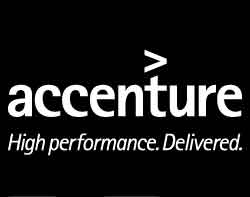How data analytics can unlock value in BPO
BPO used to be about cutting costs. But today, through the use of technology, much more can be gained by outsourcing a process. The ability to collect and analyses the massive volumes of data collected in BPO can have huge business advantages.
Technologies such as cloud computing, business analytics software, social media platforms and process automation software are being used within BPO to enable businesses to lower costs and be more effective.
This guest blog explains some of the business benefits of BPO today.
How data analytics can unlock value in BPO
By Michael Corcoran, Growth and Strategy Lead for BPO at Accenture
“Today, business process outsourcing (BPO) is moving up the value chain, becoming more focused on delivering strategic business impact, not just operating cost reductions. One key way BPO is delivering this value, as noted in a recent post by Karl Flinders, is in analytics. It’s all about mining and analysing the huge volumes of transactional data that is being processed for insights that can be leveraged to deliver differentiated outcomes.
Leading BPO providers have come to realise that in running large scale transactions, there is a wealth of insight about client businesses that can be uncovered. And the foremost among them have developed the expertise to improve and add value to their clients’ business. As such, expertise in big data and predictive analytics is quickly becoming a significant differentiator in outsourced service offerings and is critical to gaining competitive advantage.
Analysis of transactional data provides clients with actionable insight into their business operations – enabling them to improve working capital management, claim full discounts from their providers for paid-within-terms invoice processing or increase customer acquisition, satisfaction and retention, for example.
Recent Accenture research found that 42 percent of high-performing BPO relationships – those found to get the most business value — considered analytics provided by the service provider to be one of eight important components of the BPO relationship, compared to just 28 percent of typically performing BPO relationships. In the high-performing relationships we studied, providers applied their domain and industry expertise to deploy rigorous analytics processes to measure the right key process indicators; they created tools and techniques to measure and report on KPIs; and implemented algorithms, models and sophisticated statistics to identify weaknesses and opportunities. As a result, they were able to redesign processes to deliver measurable business outcomes.
In the effective BPO arrangements we’ve examined, providers have helped clients move from descriptive analytics, like standard and ad hoc reports and alerts that describe what has already happened in their business — to predictive analytics, providing statistical analysis, predictive modelling, forecasting and optimization to understand what could happen in the future and anticipate likely scenarios so they can plan more effectively.
It’s clear that analytics can empower clients, helping them to become more insightful decision-makers by providing key business performance information and identifying opportunities to address business issues and improve outcomes. In fact, Accenture’s research found that 48 percent of high performers identify ways to use data and information from the services to capture additional benefits, versus only 25 percent of typical performers. Because insights gleaned from analytics can deliver real outcomes, Accenture has seen leading clients re-align their business models to take advantage of this new source of value creation.
This is driving a whole new generation of the market, where innovative providers are leveraging large volumes of data, combining analytical tools and technologies with industry/functional knowledge to create business insights. The pure labour-arbitrage, ‘busy hands’ BPO model will steadily lose competitiveness over the long term to those who can deliver significant and sustainable business outcomes.”



